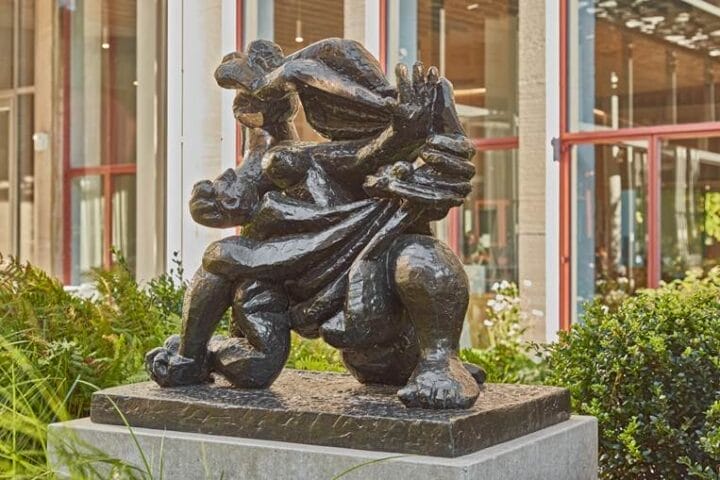3 MARCH 2023 (TORONTO, ON) – “I feel that I have had some adventures with these pieces before recording them,” says Rafał Blechacz, whose latest album is a tribute to his compatriot Chopin. “I’m freer today regarding the use of tempo rubato, dynamic contrasts and emotional extremes, and maybe I’m braver with certain ideas. I didn’t want to wait any longer before going into the studio.”
Blechacz’s devotion to the art of Chopin predates his victory in the 2005 Warsaw International Chopin Piano Competition – when he became just the fourth Polish winner in its prestigious history. It has continued to deepen and mature over the years, underpinned by a desire to uncover fresh layers of expression and meaning. Rafał Blechacz – Chopin presents his insightful interpretations of Sonatas Nos. 2 and 3, among the most musically adventurous and technically demanding in the piano repertoire. It also includes two carefully chosen companion pieces: the Nocturne Op. 48 No. 2 and the Barcarolle Op. 60. The album will be released by Deutsche Grammophon/Universal Music Canada in all formats, including a 2-LP vinyl edition out now.
Chopin completed his Piano Sonata No. 2 in B flat minor in 1839 while staying at Nohant, the novelist George Sand’s idyllic country manor south of Paris. The work channels elements of technical display, lyricism and dance rhythms into the framework of a four-movement sonata. Its sombre slow movement, the famous Funeral March, originally conceived in 1837 as a free-standing piece and often performed as such, is one of Chopin’s most popular compositions; its pathos and drama, however, are intensified when heard in the context of the sonata as a whole.
Rafał Blechacz recorded this programme in the autumn of 2021, by which point the associations of this music had become even more moving. “I think it has a special meaning in this difficult time,” he says. “We’ve had a pandemic, and now there is a war in Ukraine. So many people have died. There was a sense of dedication as I recorded this sonata.”
The Piano Sonata No. 3 in B minor, a compelling blend of Italianate lyricism and bold expressive contrasts, is hallmarked by its musical and technical complexity. The work’s four movements, completed in 1844, move from foreboding drama to exuberant joy by way of just about every emotion in between. Blechacz’s reading is by turns unsettling and consoling, pensive and carefree.
As he notes, “Formally both these works are quite Classical … Emotionally, however, the spirit is very Romantic.” Long experience of performing the sonatas live on stage has taught him to trust his intuition and allow the music to flow according to his own state of mind and the atmosphere of the occasion, while remaining faithful to Chopin’s style. He deftly captures both the structural clarity and the varied moods of the two sonatas in these recordings.
His choice of companion pieces is also based on his recital work. He usually introduces the Second Sonata with the Nocturne in F sharp minor, but has reversed the order for the album. The two works are linked by a shared harmonic progression, first heard here in the sonata’s opening movement.
Similarly, he pairs Sonata No. 3 with the Barcarolle in F sharp major. “This piece is filled with sunny Venetian atmosphere,” observes the pianist. “And because of its Italian quality it fits well beside the Third Piano Sonata.” That lyrical flavour stems from Chopin’s enduring love for Italian bel canto opera, a legacy of his student infatuation with the beautiful young soprano Konstancja Gładkowska.
“I’m so pleased to be able to record all four of these extraordinary works at this stage in my life,” concludes Blechacz. “I’ve had many experiences with this programme, playing it all over the world, in different concert halls and on different pianos. I really wanted to share the beauty of these compositions with the audience.”









